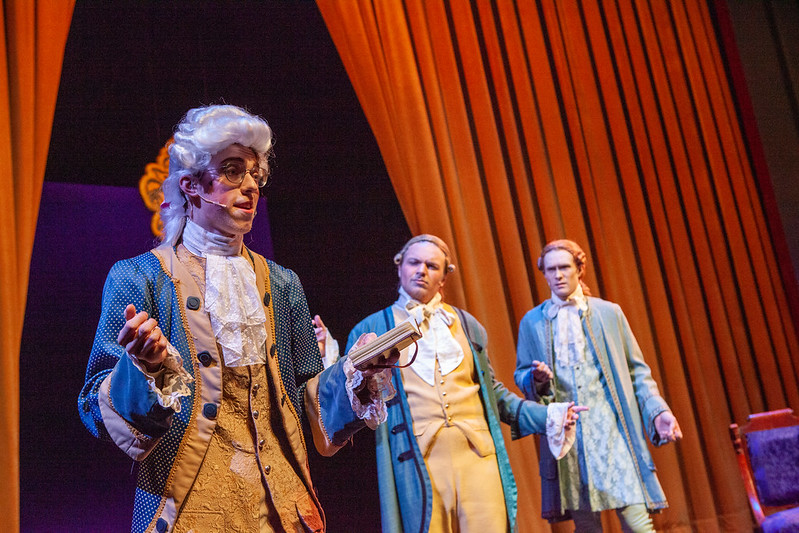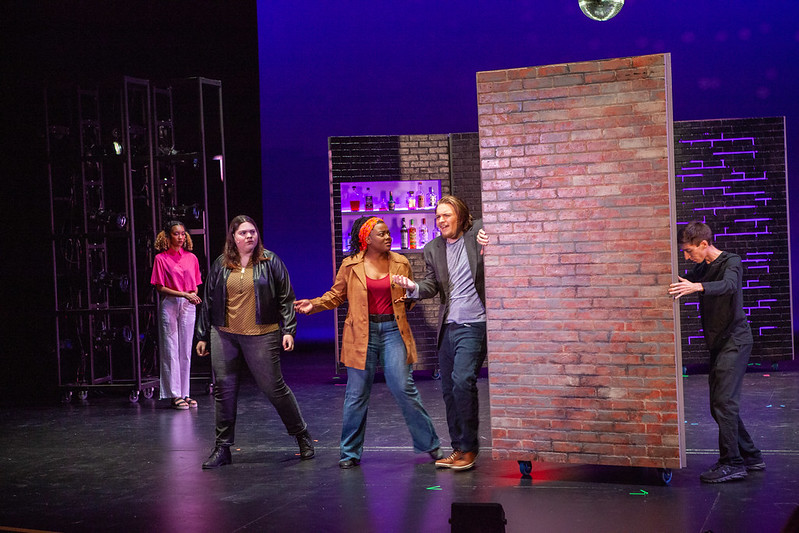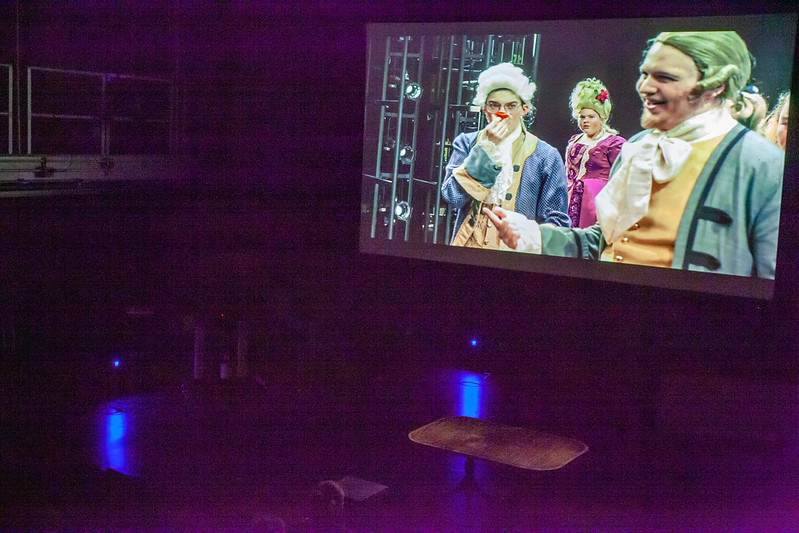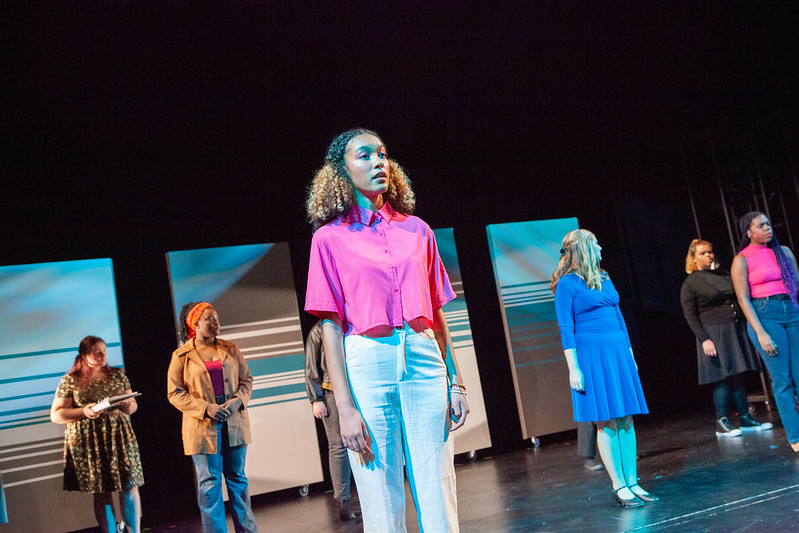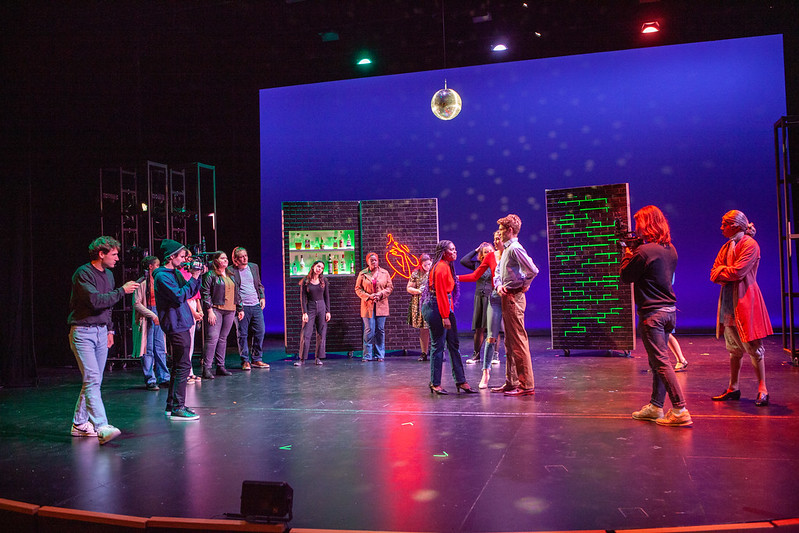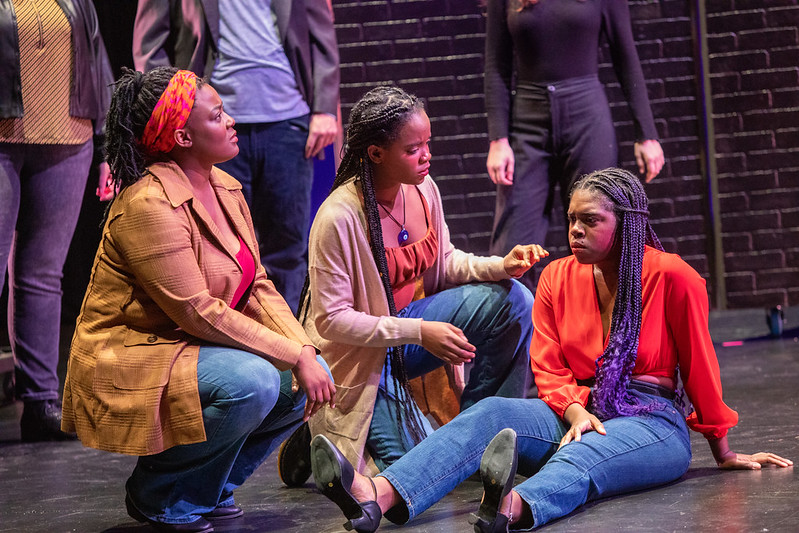- Apply
- Visit
- Request Info
- Give
Perceptions shift quickly in ‘Acting is Believing’
Written by by Lucinda Weiss
Published on December 06, 2022
“Lies and deception—it’s what actors do,” said Eastern senior Shaughn Maleryn, cast as Will in the play/film “Acting is Believing.” The Theatre & Performance Media Program production ran Dec. 1-4 in the Proscenium Theater and Delmonte Bernstein Studio Theater.
“We have to create illusion for the audience, with our acting,” he added, early in the play version of the presentation, which was performed in two parts. The audience, split in half, viewed either the play version first, or the film version of the same material, then switched at intermission. The unusual structure was drawn from a similar play/film adaptation of Checkov’s “Three Sisters,” called “What if they went to Moscow?” which was performed at the Brooklyn Academy of Music in 2018.
“Acting is Believing,” created by theatre faculty members Brian Day and David Pelligrini, used what they described as a “collage of elements” rather than a set story. The play opened with scenes from George Villiers’s Restoration comedy “The Rehearsal,” with actors dressed in wigs, waistcoats and corsets. But their “rehearsal” was quickly interrupted by contemporary characters who appeared on stage and demanded to tell their own stories. The resulting performance, on stage and in film, drew on classic movies such as “All About Eve” and John Cassavetes’s “Opening Night,” interspersed with snippets of Shakespeare and plays such as Charles Ludlam’s “Stage Blood,” a comic take on “Hamlet.”
The aim was to take advantage of both storytelling mediums—film and play—and draw the audience into discerning the meaning. “The audience, therefore, becomes central to the task of meaning-making,” the creators said in their play notes. In fact, the audience was invited on stage during the play to dance with the actors.
The dual format also allowed students to work in two mediums and across centuries of play and performance twists. The immediacy of stage acting was contrasted with the intimacy of film, with its close-ups and filmed backstage asides. The actors directed their own versions of the story they wanted to tell, at one point even throwing out the play director, acted by senior theatre major Joy Ikechukwu: “We don’t hate you, we just don’t need you right now,” they told her. At another point, actor Tyler Warren, a first-year theatre major, delivered an improv comedy skit.
Where the play ends and where real life begins was also a constant worry for the actors as they wrestled with illusion and their life stories. As Bonnie Mentz, a first-year student double majoring in elementary education and theatre, playing a stagehand, said, “The actors become people.” But reality reared an ugly side, too, when actress Jasmin Lee Clark, a junior Theatre major, repeatedly ducked a stage slap from her actor-boyfriend, played by Maleryn, even as she was trained onstage in how to perform it.
“Art isn’t life,” he assured her.
Co-director Day, also director of photography, producer and film editor, is an assistant professor in the Performing Arts Department, where he teaches filmmaking. Co-director Pelligrini, who adapted the production, is professor of theatre history.



